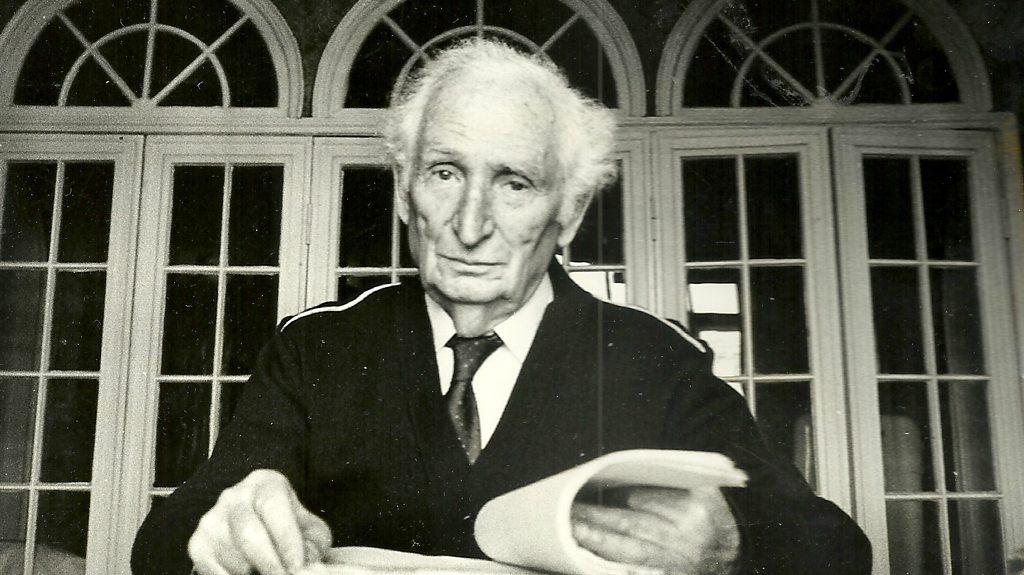Russian memorials to victims of Stalin vanish
- Published
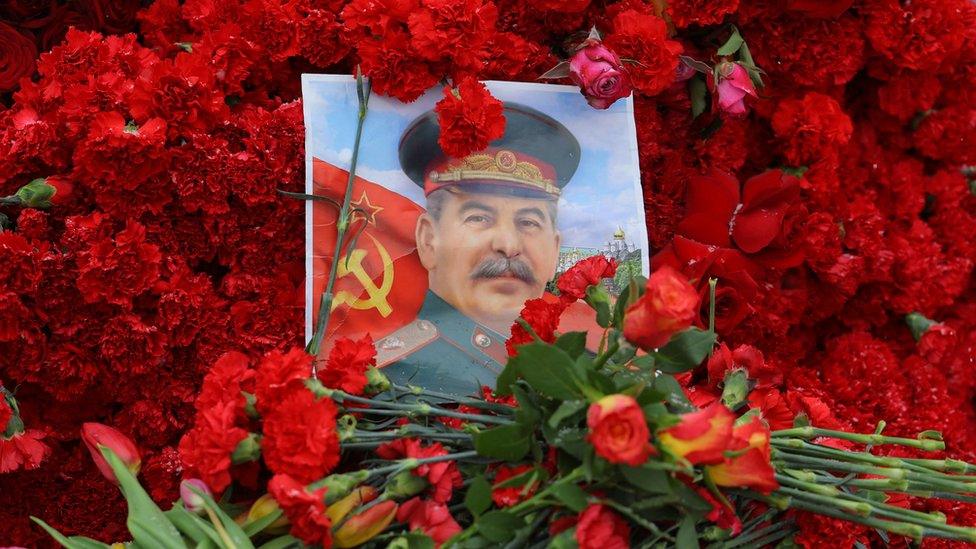
Russia marked the 70th anniversary of Soviet leader Joseph Stalin's death in Red Square this year
Memorials to victims of Stalinist repression in Russia are disappearing or being vandalised amid increasing attempts to rehabilitate the Soviet dictator.
For the past nine years, more than 700 plaques have been put up in Russia and elsewhere, commemorating the final residences of people who died in Stalin's purges in the 1930s.
Since May, however, dozens have disappeared in several Russian cities, according to Oksana Matievskaya, who is part of the plaque project Posledniy Adres (last address).
Police are not investigating the issue and Ms Matievskaya believes this is no coincidence.
"The memory of the Soviet terror challenges the concept of the state always being right and is, therefore, inconvenient for the Russian authorities. Especially following the invasion of Ukraine," she said.
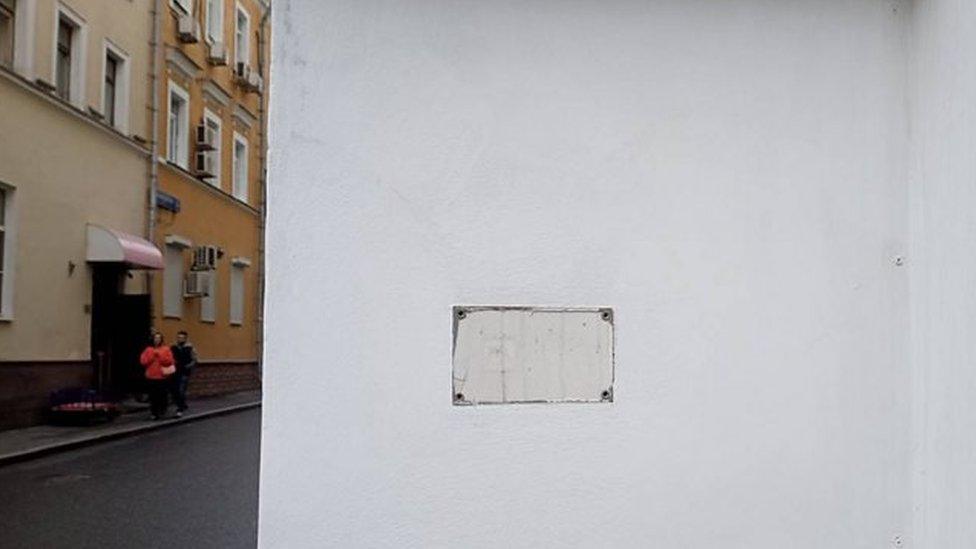
No-one knows who is responsible for the plaques disappearing
Millions of people described as "enemies of the people" were sent to Soviet labour camps, known as the Gulag, and 750,000 were summarily murdered during Stalin's Great Terror in the 1930s.
Other memorials are also being targeted.
At least 18 monuments to victims of repression as well as foreign soldiers who fought in World War Two have been reported stolen or vandalised since February 2022. Most are dedicated to Polish nationals.
In October, a brick memorial to a prominent Polish priest was torn down and destroyed in the city of Vladimir.
A concrete cross erected in Komi republic, in memory of Polish prisoners, was also found demolished. Police attributed its destruction to bad weather and declined to initiate criminal proceedings, local media said.
Soviet authorities executed hundreds of thousands of Poles after 1939. In 1940, 1.7 million were deported to Gulag camps in Siberia and Kazakhstan.
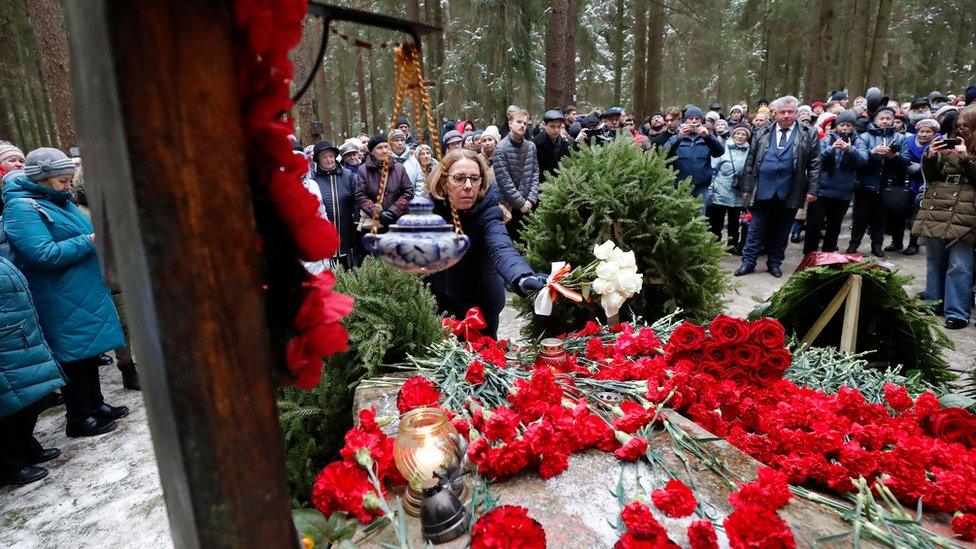
Some 45,000 victims of Stalin's repression are buried in Levashovo woods, outside of St Petersburg
Alexandra Polivanova of civil rights group Memorial believes the damage was ordered or carried out by authorities because Moscow wants the Soviet Union to be perceived as a powerhouse rather than an oppressive state.
She suggests the government doesn't want Russians to know the truth about their tragic past, especially now that Russian soldiers have been accused of war crimes in Ukraine.
"The authorities try to erase the memory of the crimes of that empire to cover up or justify the crimes of this one."
This is taking place alongside a resurgence in Stalin's popularity.
In July, a survey by independent pollster the Levada Centre suggested that 63% of Russians had a favourable attitude towards the Soviet leader - his highest approval rating in 13 years.
The explanation behind his rising popularity is not certain but Russian propaganda justifying the war with Ukraine has also glorified its Soviet past.
And unlike memorials to his victims, those to Stalin have increased in number.
An investigative channel on social media site Telegram called "We can explain" says there are 110 Stalin statues in Russia - 95 erected during President Vladimir Putin's rule and at least four during the full-scale invasion of Ukraine.
Some Russians want even more. In August the private Russkiy Vityaz (Russian Knight) Foundation inaugurated an 8m-high statue of Stalin in the town of Velikiye Luki, and is collecting money for more.
Its website argues these monuments are crucial given that Russia is fighting "a real Patriotic war". The "Great Patriotic War" is how Russians describe the 1941-1945 war between the USSR and Nazi Germany. The Kremlin regularly compares Russia's invasion of Ukraine to World War Two.
Russkiy Vityaz, which is said to have been founded by the Russian Special Forces Veterans Association, has declined to comment on the reasons for its campaign.
Related topics
- Published18 April 2019
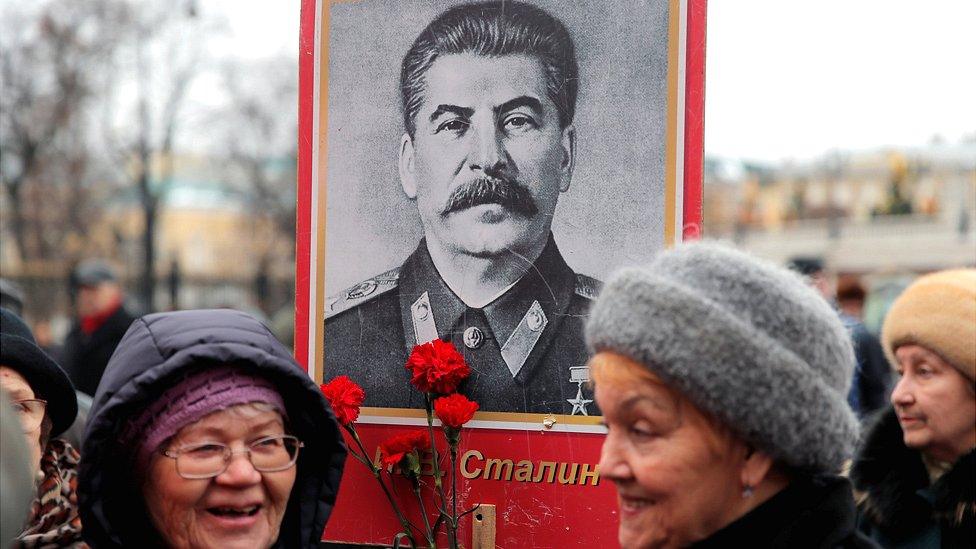
- Published9 January 2019
